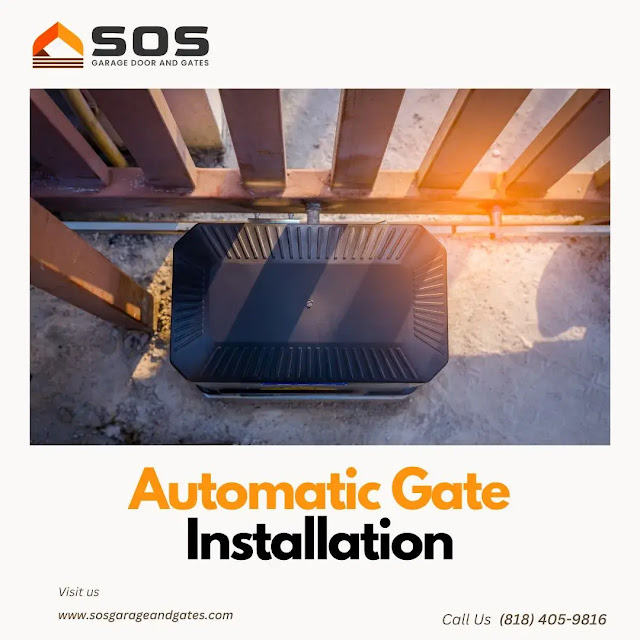Why Electrical Issues May Necessitate Garage Door Repairs
Understanding the complexities of electrical problems in garage door systems is essential for both homeowners and technicians, as these issues can significantly impact the functionality and safety of the garage door. Key electrical components like safety sensors, circuit boards, and wiring systems play crucial roles in maintaining seamless operation. Power surges, for example, can damage circuits, causing issues in sensor communication and leading to operational disruptions. Deteriorating circuit boards can impede signal transmission between the sensors and the motor, while faulty wiring may lead to short circuits or even a complete system failure. Addressing these issues requires precise troubleshooting and a comprehensive understanding of garage door electrical systems. As we explore common electrical malfunctions and their effect on garage door functionality, the importance of preventative maintenance strategies becomes increasingly evident.
Common Electrical Issues in Garage Door Systems
Several electrical issues are commonly encountered in garage door systems, each with unique symptoms and underlying causes. A frequent problem is malfunctioning circuit boards, which can occur due to power surges, excessive wear, or simple age-related deterioration. When a circuit board begins to fail, it can cause various operational issues, such as inconsistent door movement or unresponsive remotes. Technicians use multimeters to check for continuity and voltage, ensuring the connections within the circuit board are intact and that it’s receiving the appropriate power levels.
Faulty wiring is another common culprit in garage door electrical problems. Worn, frayed, or improperly connected wires can disrupt power flow to the motor or sensors, leading to erratic behavior or a complete loss of function. Skilled technicians meticulously trace wiring paths, looking for shorts, breaks, or loose connections that might impede performance. Using diagnostic tools and consulting wiring schematics, they can accurately locate and repair any electrical inconsistencies.
Safety sensors, or photo-eye sensors, are also vital components that can frequently encounter issues. These sensors prevent the garage door from closing when an object obstructs its path, ensuring the safety of individuals and pets. However, if these sensors are misaligned or obstructed by dirt or debris, they may send false signals to the control system, causing the door to stop or reverse unexpectedly. Regular inspection of these sensors, including cleaning the lenses and verifying alignment, is essential to prevent such malfunctions.
Environmental factors can also contribute to electrical issues. Extreme temperatures, high humidity, or exposure to moisture can affect electrical components over time. For instance, wiring connections may corrode in humid conditions, or circuit boards may degrade faster in fluctuating temperatures. Technicians are trained to recognize the effects of environmental stress on garage door systems, applying appropriate fixes to ensure reliable operation.
Preventative Measures for Electrical Reliability
Taking proactive steps to maintain the electrical integrity of garage door systems is essential to prevent costly repairs and ensure long-lasting functionality. Routine inspections and maintenance schedules should be implemented as part of a preventative approach, allowing homeowners or technicians to identify potential issues before they develop into more serious malfunctions.
One critical preventative measure is regular inspection of the garage door wiring. Ensuring that all wires are in good condition, free from corrosion, and securely connected can greatly reduce the likelihood of short circuits or operational failures. Replacing damaged wiring at the first sign of wear helps to maintain consistent power flow to the motor, sensors, and control board, supporting smooth operation.
Another important preventive step is the use of surge protectors. Voltage spikes caused by power surges can damage sensitive electrical components, particularly the circuit board. By installing a surge protector, homeowners can shield these components from electrical storms or sudden power fluctuations, extending the lifespan of the system.
In addition to protecting the electrical system, regular lubrication of the garage door’s moving parts, such as rollers and hinges, helps reduce the mechanical stress on the motor. When components move freely, the motor doesn’t have to work as hard, which reduces the electrical load and minimizes the risk of overheating. This maintenance not only improves performance but also contributes to the longevity of both the motor and the electrical system.
For added security, installing a backup battery system is advisable. A backup battery allows the garage door to continue operating during power outages, providing uninterrupted access and enhancing the system’s resilience. This feature can be especially valuable in areas prone to frequent outages, offering homeowners peace of mind that their garage door will remain functional.
Lastly, partnering with professional technicians for periodic assessments is a valuable preventative strategy. Technicians bring expert diagnostic skills and can identify subtle signs of potential electrical failures that may not be immediately apparent. With regular evaluations, they can address issues early, ensuring the garage door system remains safe, efficient, and reliable.
Ensuring Safety and Longevity Through Electrical Maintenance
The interplay of electrical components in garage door systems reveals a complex web of connections, each part crucial to the door’s overall functionality. Electrical malfunctions, whether due to faulty wiring, deteriorating circuit boards, or misaligned safety sensors, are hidden threats that can quietly compromise the safety and convenience of garage doors. These issues require careful attention, precise troubleshooting, and, most importantly, proactive maintenance.
By implementing preventative measures, such as routine inspections, surge protection, regular lubrication, and backup battery installation, homeowners can safeguard their garage door systems from common electrical disturbances. Understanding the intricacies of these components, and knowing when to seek professional assistance, is essential to maintaining the garage door’s operational integrity.
Regular maintenance not only preserves the system’s functionality but also fosters a sense of security and convenience for homeowners, as well as a commitment to safety and reliability. In essence, safeguarding the electrical components of garage doors ensures their smooth and uninterrupted operation, providing a dependable barrier that preserves both the security of the home and the daily convenience homeowners rely on.


Comments
Post a Comment